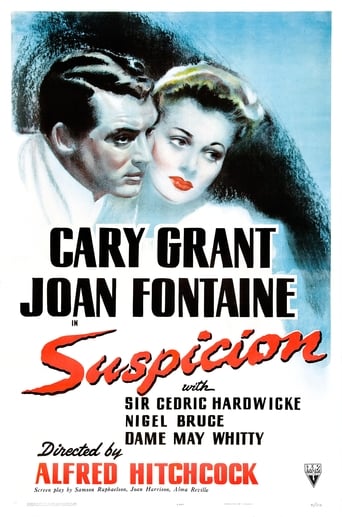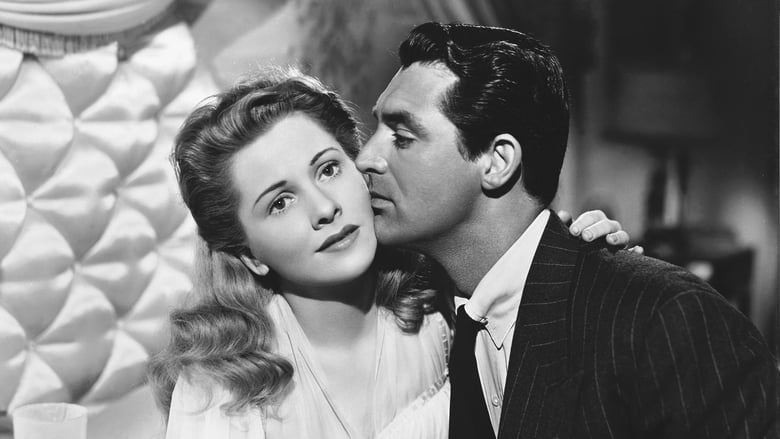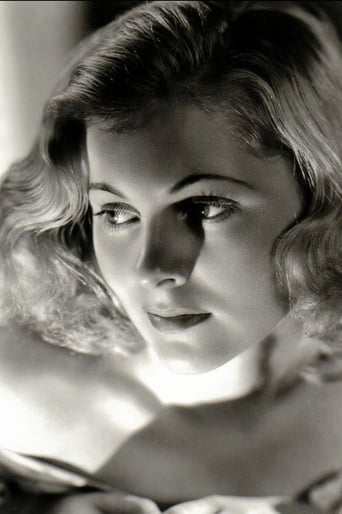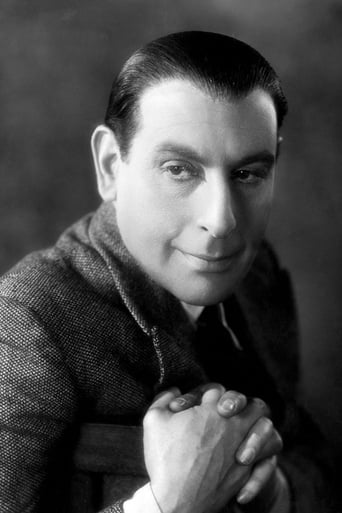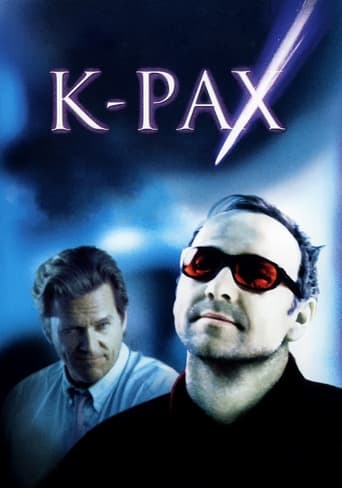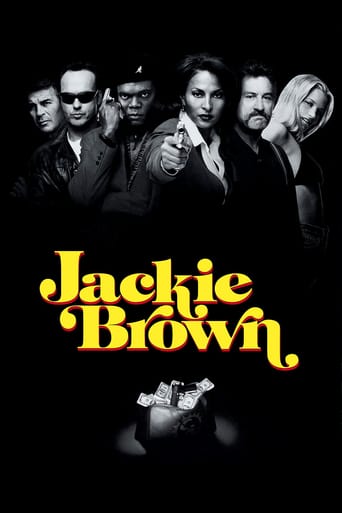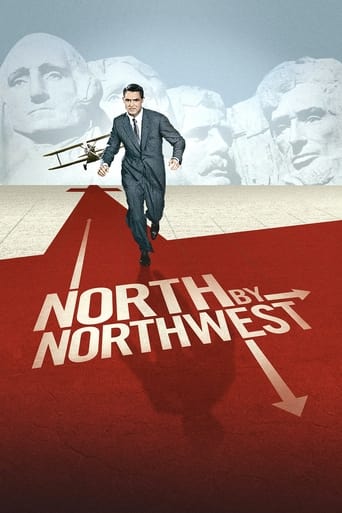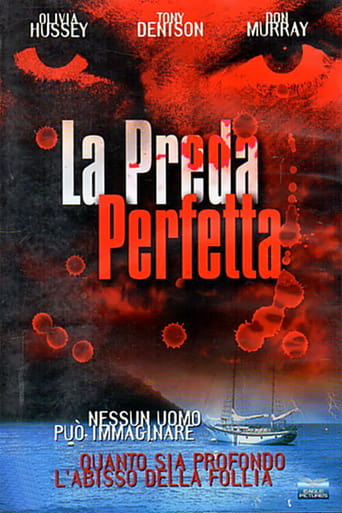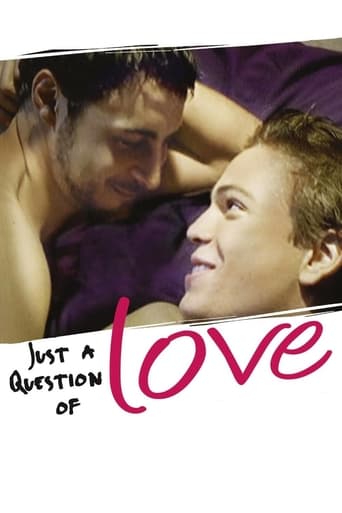Suspicion (1941)
Wealthy, sheltered Lina McLaidlaw is swept off her feet by charming ne'er-do-well Johnnie Aysgarth. Though warned that Johnnie is little more than a fortune hunter, Lina marries him anyway and remains loyal to her irresponsible husband as he plows his way from one disreputable business scheme to another. Gradually Lina comes to the conclusion that Johnnie intends to kill her in order to collect her inheritance.
Watch Trailer
Cast


Similar titles
Reviews
The performances transcend the film's tropes, grounding it in characters that feel more complete than this subgenre often produces.
Great movie! If you want to be entertained and have a few good laughs, see this movie. The music is also very good,
Fun premise, good actors, bad writing. This film seemed to have potential at the beginning but it quickly devolves into a trite action film. Ultimately it's very boring.
The film makes a home in your brain and the only cure is to see it again.
SUSPICION is exceptionally well directed and photographed, a visually beautiful film, and the acting by the two main leads is of superior quality. I have never seen better from Cary Grant, and Joan Fontaine received her Oscar for this performance (although I preferred her in REBECCA). The supporting cast is also very good.Where things come unstuck is with the script. Aysgarth (Grant) is clearly a thief, a liar, and possibly a murderer, but wife Fontaine is too blinded by her love to see it. I readily accept that love can blind you, but with so much evidence - especially after the sale of her father's much prized chairs - I would have thought that any self- respecting woman would have given him the boot, not least because he does not have a cent to his name.Instead, Mrs Aysgarth recurrently forgives her sinful hubby and, in the process, loses the spectator's respect. The final blow is the studio-dictated ending that basically tells you the rest of the movie is a fib. Pity, Hitch would have deserved better. The greater our loss, too. 7.5 would be my mark, but I can't honestly round it up to 8, so I'm giving it 7.
Dismissed by critics as "minor" Hitchcock, SUSPICION nonetheless has plenty to recommend it.Set in a chocolate-box English village reconstructed on the RKO back-lot, full of green fields, mock-Tudor housing, hunting scenes and over-stuffed interiors, the film contrasts the stultifying respectability of spinster Lina's (Joan Fontaine's) life with the prospects offered by chancer Johnnie (Cary Grant).Lina lives in a village world where church-going and hunt balls are the highlights of daily life. Her parents (Dame May Witty and Sir Cedric Hardwicke) spend their days in their comfortable living-room, either embroidering or reading the paper. They have no need for excitement: General McLaidlaw (Hardwicke) has enjoyed a distinguished military career and has now retired. By contrast Johnnie, although reluctant to work, as well as being a habitual liar with a penchant for betting, has that indefinable quality called charm (what else would he be, when played by Grant?) Lina understands what a worthless person he is, but cannot detach herself from him. As Johnnie's friend Beaky (Nigel Bruce) tell her, he can be excused anything.The only suggestion that something might be amiss is communicated through lighting. The two protagonists are perpetually photographed with bars - window-bars, blinds, stairwells being three example - either across their bodies or at the back of the frame, suggesting imprisonment. This is both physical as well as emotional: neither Johnnie nor Lina can be honest with one another. As a result Lina continually suspects her husband's motives.There are continual echoes of REBECCA, filmed in the previous year - not only with the presence of Fontaine in the case, but also with the use of stock footage taken on the coast from the cliffs looking down at the sea crashing below. The final sequence, where Johnnie drives his sports car at breakneck speed, putting both his own and his spouse's safety at risk, recalls a similar moment in the earlier film. The endings of the two films are different, but the intertexts remain.There is one memorable sequence towards the film's end, drawing attention to Hitchcock's penchant for the macabre. As Johnnie is abound to climb the stairs, he is photographed in shadow, picked out against a tight column of bright light. Just what his motives are, we know not; but the visual effect is stunning.
Suspicion starts out like a nice romance. You wonder where the typical Hitchcock mystery and intrigue are going to arise from. Cary Grant meets Joan Fontaine and seems to immediately like her. He's charming and very forward and pretty soon she seems to fall for him as well. Still, the whole thing feels a bit rushed and really they don't know each-other that well, which is probably asking for trouble. In real life, I've often found people end up not as perfect or as nice as you thought they were once you get to know them. Cracks start appearing in their personality, little nasty or hypocritical things about them.Well, perhaps Grant's character is not so flawless after all. What's good about the movie is that we can strongly relate to Fontaine's character. She starts to become ever more concerned and frustrated at her husband's behaviour. She comes across as intelligent and perhaps her only weakness is how much she loves him - she may be too forgiving. I can't say much else, but the movie cleverly leads us to feel more and more suspicious without ever revealing anything explicit. We can never be sure, there is always some doubt.Joan Fontaine won an Oscar for her performance (the only ever acting Oscar won for a Hitchcock movie) and perhaps it was also a nod to her acting in Rebecca (1940) the previous year. But she is very good in this film as is Cary Grant. I found Grant funny in a lot of scenes but then started to feel uncomfortable about him. It is a scary situation to be in, feeling afraid of someone but having no solid evidence of misdeeds and having no good excuses to behave any differently from normal. He appears cold at times but we don't necessarily know exactly why.Suspicion reminded me of The Prestige (2006) in that I wanted to discuss it with other people afterwards. It engaged me, put me through some emotional ups and downs and left me feeling a bit confused and unsure. But that can be good. It's not predictable and there is certainly some amount of ambiguity by the end. But because of that, it stays in your mind and you keep pondering it, analysing it.There are parts that are truly haunting and also heart-breaking. The main characters really do appear to be in love. But one of them has bad habits and a tendency to be manipulative at times. Maybe he can't help it and maybe he can change. Maybe it's not worth the trouble for his wife but then can't love conquer all? Her suspicions feel justified but could he really be like that? I think we are much more vulnerable to those we love and to even suspect them of something can cause immense pain. Joan goes through these feelings and so do we.
In "Suspicion", Hitchcock takes the audience on a ride. The story starts by mixing two seemingly incompatible people--Cary Grant as Johnnie and Joan Fontaine as Lina--and making them a couple. She is a studious, introspective, conservative woman and he is an impetuous, impertinent, immature extrovert. Their joining is the recipe for some kind of discord.Lina is the viewer's avatar in the film. Notice how the story follows her point of view. Much of the circumstantial evidence that points to Johnnie's guilt is viewed through her eyes, conveyed through her external clues to inner turmoil in a great performance by Fontaine. Note the way Hitchcock lights the interior of their home--usually with a multitude of shadows. He frames Lina with the shadows of the large window, a cage, making her a prisoner of her own love for Johnnie.The dream of happiness that was the center of their honeymoon becomes a nightmarish roller coaster ride of emotions as soon as they return home. Lina is an amateur regarding relationships, so it takes her a while to understand her feelings and to learn what limits her fidelity has.As the evidence--circumstantial and otherwise--piles up (perhaps a little too neatly), Hitchcock asks the viewer to understand Lina's confusion and her ambivalence. But it is human nature to want to exhaust every last shred of doubt in defending one's love, so we take the journey with Lina until finally there is only certainty. The script is very tight and cleverly written and the score is lush, accenting the emotional highs.Hitchcock wanted a darker ending, but still managed to create an ending that delights in having taken the audience for a ride. He would get his darker ending two years later, with "Shadow of a Doubt". In both cases, note how he uses a waltz theme for the one under suspicion.I thoroughly enjoyed this film. It is filled with prototypical Hitchcockian elements (e.g. his focus on her hair). Joan Fontaine's performance alone--so nuanced, especially when compared to some other portrayals of women spiraling toward a breakdown--makes the film worth watching.

